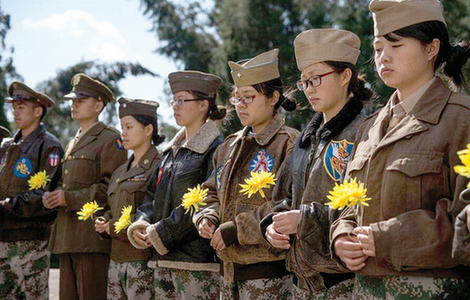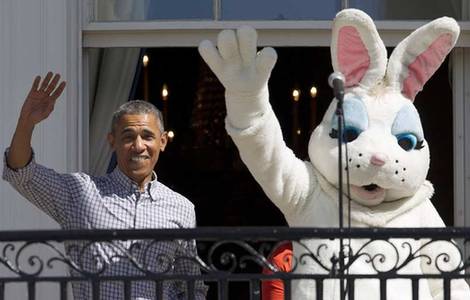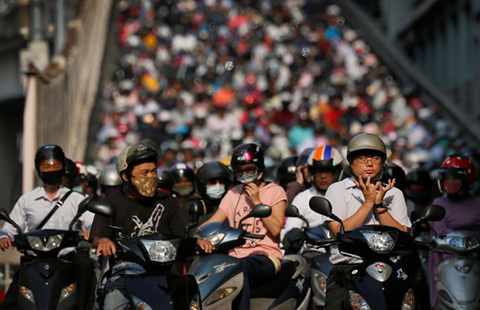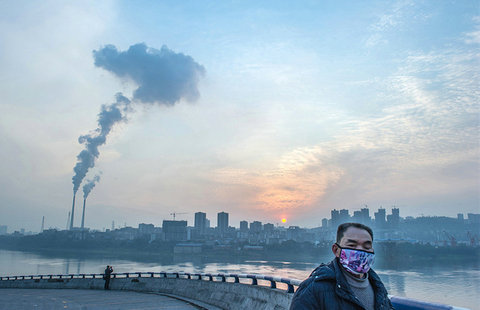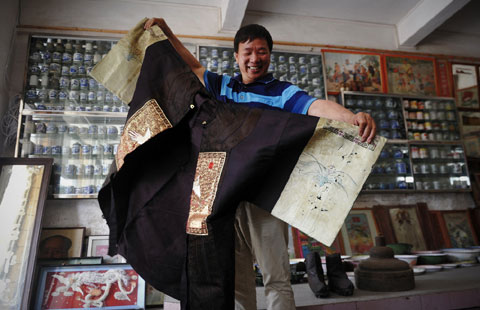RBA fails to shift stance, but says policy easing could be on agenda in the future
Updated: 2015-04-08 08:09
By Bloomberg(China Daily USA)
|
|||||||||
Australia's central bank said it could ease policy further at future meetings after keeping interest rates unchanged at a record low as the economy grapples with tumbling commodity prices. The local currency rose.
The overnight cash rate target was held at 2.25 percent, Reserve Bank of Australia Governor Glenn Stevens said in a statement on Tuesday following a board meeting in Sydney. The decision wrong-footed markets and was predicted by 17 of 30 economists surveyed.
Stevens is relying on a 7 percent drop in the currency last quarter to boost local companies' competitiveness while keeping his remaining policy powder dry. He's avoiding further encouraging a rampant Sydney property market rather than rejoining global counterparts in a wave of easing aimed at countering disinflation pressure.
"The RBA will cut rates again in 2015 but is waiting for more data on how the economy is tracking," Katrina Ell, an economist at Moody's Analytics in Sydney, said before the decision. "We expect another 50 basis points worth of cuts, with a May cut likely after inflation data is released."
The Australian dollar rose immediately before the decision and was quoted at 76.86 US cents at 2:44 pm in Sydney from 76.09 cents in the minutes before the announcement.
"Further easing of policy may be appropriate over the period ahead, in order to foster sustainable growth in demand and inflation consistent with the target," Stevens said in the statement. "The board will continue to assess the case for such action at forthcoming meetings."
Property prices
Low rates have helped spur Sydney property prices by almost 40 percent from a trough in May 2012. Australian regulators are trying to slow growth in loans to investors, who have been driving the real estate market, and ensure lending standards don't slip.
At the same time, the Australian dollar has fallen from about 95 US cents in the middle of last year, boosting the competitiveness of local industries.
Still, iron ore, which accounts for about A$1 in A$5 of Australia's export income, plunged to a 10-year low last week. China, Australia's biggest trading partner, lowered its growth target for 2015 to 7 percent and iron ore supply is increasing.
While producers could curtail output to boost the metal's price, the biggest - Vale SA, Rio Tinto Group and BHP Billiton Ltd - are sticking to their guns to protect market share.
Tuesday's decision is the first time in at least the past eight years that traders' bets on the meeting outcome were wrong while the median forecast from economists was correct, according to data calculated by Bloomberg.
Australia is on track to record an economic expansion below its potential rate of 3 percent for six of the past seven years, the longest stretch since the nation's last recession in 1991.
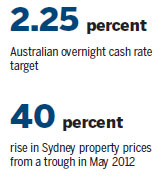
(China Daily USA 04/08/2015 page16)
- China's last Bombardier CRJ200 civil aviation aircraft retires
- Record travel on Tomb Sweeping Day holiday
- Report highlights growing role of new media
- Southeast China's chemical plant fire put out
- Three injured in chemical plant blast in E China
- Visits to Nanjing massacre memorial more than double in Q1
Most Viewed
Editor's Picks

|

|

|

|

|

|
Today's Top News
Americans prefer China to Japan on economic ties
World Bank welcomes AIIB
Business, energy vital
in trade trip
US tourism spots target
Chinese visitors
Suit filed over US weed killer
China has world's most
congested cities
Cause of China chemical plant blast identified
Chinese group backs reversal on injunction
US Weekly

|

|

